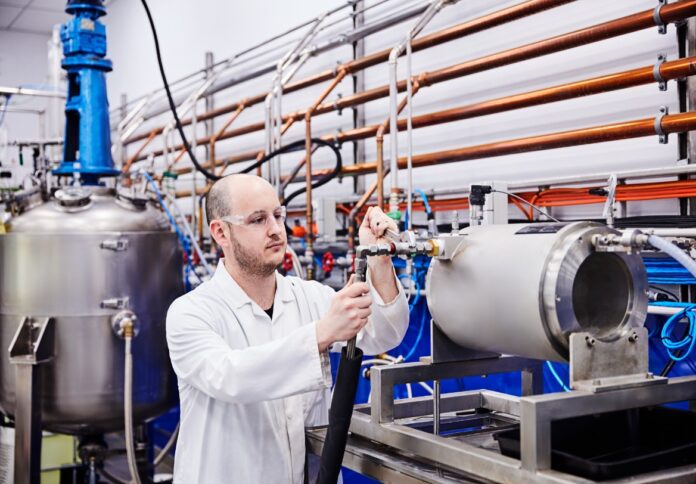
A collaboration between Melbourne’s Boron Molecular, DMTC Limited, and CSIRO has demonstrated a critical platform technology for synthesising drug compounds at scale in Australia.
This innovation aims to advance the country’s onshore pharmaceutical production capabilities, DMTC said in a news release.
The project highlights the benefits of flow chemistry, a process of continuous chemical reactions conducted in a pipe or tube.
This method offers numerous advantages over traditional batch processing, including improved energy efficiency, waste reduction, enhanced safety, a smaller infrastructure footprint, and flexibility in manufacturing volumes.
Dr Felicia Pradera, Head of the Health Security Systems Australia (HSSA) division at DMTC, noted the significance of the project: “In developing sovereign manufacturing capability, speed of response is critical but it’s far from the only measure.”
She continued, “The team has worked diligently to ensure that technical rigour, quality control, and cost-effectiveness have been front-of-mind considerations at every step.”
Meanwhile, Boron Molecular CEO Dr Oliver Hutt emphasised the project’s impact on Australian industry: “In addition to building the pilot plant, our work provides a really comprehensive blueprint for stakeholders to assess the feasibility of this technology. We’re continuing to work with DMTC and have identified some really compelling niche areas this technology could be applied to benefit Australia.”
The CSIRO, which initially pioneered flow chemistry in Australia, continues to support the DMTC project.
The integration of CSIRO’s FloWorks facility into the project has been instrumental in its success.
“These types of big projects are just fantastic training opportunities, and it really forced us to lift our game,” Dr Hutt added.
“Upskilling our researchers has involved them being embedded at CSIRO’s FloWorks facility, which provided invaluable access to world-class flow chemistry researchers.”
Dr Pradera highlighted the broader benefits of the project: “This project has brought something that’s been identified as a critical technology in the national interest, matured it, and demonstrated it at pilot scale, bringing it to the point where it is primed for further investment.”
Flow chemistry technology could provide Australia with a competitive advantage in managing significant supply chain pressures and ensuring the availability of at-risk active pharmaceutical ingredients.
“A ‘platform’ technology is one that validates a development pathway – once that process is proven with a therapeutic asset, the know-how and expertise can be transferred to support Australia’s efforts to develop local manufacturing capability for other classes of pharmaceuticals,” Dr Pradera said.
For a closer look at the science behind this breakthrough, view the video story.




















